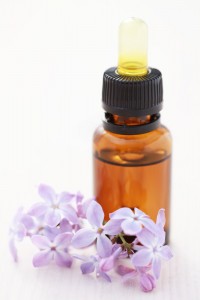Aromatherapy is the use of concentrated plant extracts called ‘Essential Oils’ taken for the purposes of therapeutic treatment from the roots, leaves, flowers or seeds. Historically, the use of plant oils for medicinal reasons and in perfumery is evidenced in many ancient civilizations of Egypt, China, India, Romans, Greeks. In some cultures it has also been used for religious and ritualistic purposes.
Modern aromatherapy was introduced by René Gattefosse who discovered the healing qualities of lavender oil when he experienced a burn whilst working in his perfume laboratory and dipped his hand into a jar of lavender essential oil. He later started to analyse the oil by treating burn victims, infections and wounds of soldiers during World War I. This was the birth of modern aromatherapy.

Licensed through http://www.canstockphoto.com in accordance with the End User License Agreement (http://www.canstockphoto.com/legal.php)
(c) Can Stock Photo Inc. / matka_Wariatka
How does it work?
Aromatherapy research has identified that each essential oil contains active chemical ingredients. This helps determines its properties and therefore therapeutic applications. Essential oils have a range of properties, from being antibacterial, antiseptic, anti-inflammatory, anti-fungal, analgesic, sedative, digestive, carmative and many others. Fragrance of the essential oils affect us through our smell receptors, which accesses certain parts of our brain responsible for emotions and memories (amygdala and hippocampus). This is similar to how some sedative medications work. Further, essential oils may also interact with our hormonal system therefore influencing the production of hormones and enzymes. One research identified skin olfactory receptors which responds to Sandalore (a synthetic sandalwood odorant used in perfume and skin care products). Such receptors are not limited to just the nose, but also found in tissue in other parts of the body. Long-term exposure to Sandalore positively affects skin cells by encouraging cells to multiply and migrate. Results show there was a 32% increase of positive cell activity. In the case of wound healing the ability to repair and new skin growth is greatly enhanced.
What happens during an Aromatherapy session?
In aromatherapy essential oils are used in a variety of ways; directly on skin through massage, hot or cold compress, burners, baths or in a diffuser. The most popular method is massage, as it has multiple benefits i.e. direct effects of the oils on the skin, effect from inhaling it and the physical effects of the massage. An aromatherapist is trained so that they are able to choose the most appropriate essential oils aimed at relieving the individual’s problem. They will usually incorporate a selection of 2 – 4 types of essential oils taking into account their properties and the outcome they would like to achieve. For the purposes of massage they are blended with a carrier oil to the right dilution and then used. After a consultation to gather details about your problem e.g. back pain and other health issues. The therapist will leave the room, while you undress and lie down on the treatment couch. A towel or sheet will be provided to cover yourself. During the treatment only the part of the body being massaged will be exposed. Massage oils or lotion may be used to help make smooth the massage movements. Throughout the treatment there may be soft music being played in the background. Depending on the area a massage session can last between 20-90 mins.
How can Aromatherapy help?
Aromatherapy is extremely useful as a treatment to enhance overall health and well-being. It can be used for problems with anxiety, depression, pain management, PMT, arthritis, headaches, sleep difficulties, eczema and others. Often it is used in patients with cancer and other palliative care conditions. Scientific studies on its use as a supportive care agent in cancer and palliative care indicate the following;
- Improvement in mood, and alleviating anxiety and depression
- General improvement in quality of life, with fewer physical and psychological symptoms
- Improved sleep and mobility
- Reduction in the intensity of nausea, retching and cough
- Improvements in constipation and quality of life
- Reduction in blood pressure, pulse and respiration
References:
National Cancer Institute. (2014) Summary of the evidence for aromatherapy and essential oils. [Accessed 6 Sept 2014] [Weblink]
University of Maryland Medical. (2013). Aromatherapy. [Accessed 6 Sept 2014] [Weblink]
